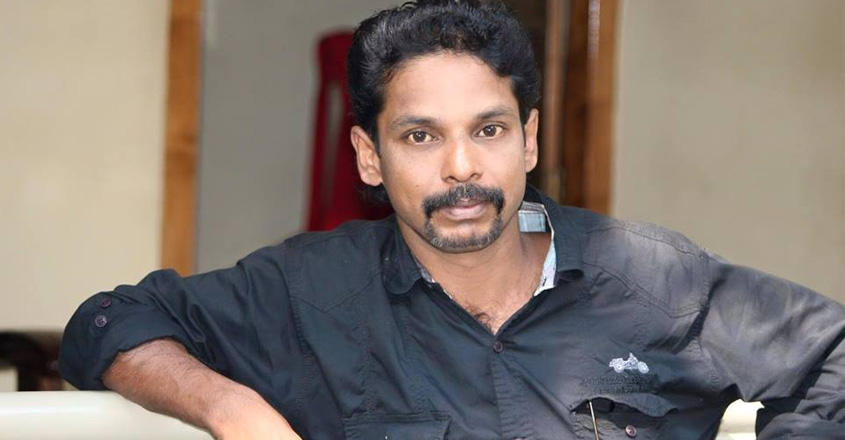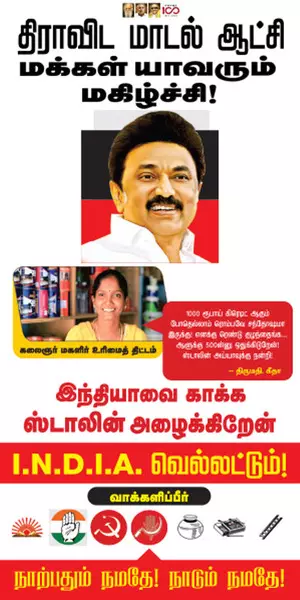
Pencil that never shrinks: A Malayalam poet finds new audiences in Tamil

“Medicine, law, business, engineering, these are noble pursuits, and necessary to sustain life. But poetry, beauty, romance, love, these are what we stay alive for.” So says John Keating in the 1989 film Dead Poets Society. It is a sentence Malayalam poet Pavithran Theekkuni could have written.
“One cannot differentiate Theekuni’s life and his poems. Even after becoming an established poet, his struggles with day-to-day life and backstabbing literary politics continue to hurt him. To be precise, it is from his wounds that his poems continue to be born,” says poet and Carnatic music teacher ND Rajkumar, who has recently translated Theekuni’s poems into Tamil.
Also read: How Sankaradas Swamigal shaped Tamil theatre before being ‘forced’ to leave it
Based in Nagercoil in Kanyakumari, Rajkumar naturally knows Malayalam, since the district borders Kerala. However, he came to know about Theekkuni through a single-column news item published in the daily Theekkathir, a party organ of the CPI-M, around 2010.
“After reading about him, I wanted to meet him. Another Malayalam poet, KN Shaji, introduced me to the works of Theekkuni. After reading those poetry collections, my urge to meet him only increased,” Rajkumar said.

But due to abject poverty, Theekkuni kept moving from one place to another in search of work, and because of that meeting him became an elusive task, he said. “Following many attempts, I met him. Meanwhile, I also translated some of his poems, and the collection titled Theekkuni Kavithaigal was published by a little magazine called Pudhu Ezhuthu in 2010.”
Born in Theekkuni in Kozhikode district of Kerala, Pavithran Theekkuni had a difficult childhood. His mother was branded as a prostitute and his father became mentally ill following constant criticisms from villagers of his wife. Because of these difficulties, Theekkuni ran away from home at the age of eight.
After leaving home, he constantly moved from one place to another in search of work. Being a child labourer, he was abused physically and sexually. Theekkuni thought of taking his own life many times, but his love of education kept him alive.
“It was during my school days that I came to realise that poems have the power to make us live. When I was in Class 9, a poem of Punaloor Balan, called Iruttil Pothinja Thirunallam, gave me the strength to face life,” Theekkuni writes in his preface to the translated work.
Also read: Why everybody wants to appropriate Thiruvalluvar
Noticing his love of poetry, some teachers helped Theekkuni in his studies. In order to meet his daily expenses, the boy took up menial jobs, from breaking stones to selling fish. Against all odds, he stood first in his school final exams and joined a Malayalam literature programme in college.
During his student days, Theekkuni’s poems were published in the children’s section of Mathrubhumi newspaper. He published his first collection of poems in a low-quality paper and sold it for ₹2-₹3. In 1994, he married a girl named Shantha and the couple had two children. It was with the dowry he received that Theekkuni was able to arrange his sister’s wedding.
“Due to the debts I incurred by running a chit programme, I was pushed to leave the village. It was Onam and a rainy day. I didn’t have any money with me. I came with my family to Thrissur. My children went to bed hungry. My wife started to wail. That night we decided to end our lives by lying on the railway tracks. But somehow good sense prevailed and we gave up the idea of suicide,” said Theekkuni.
It is these kinds of experiences that continue to reflect in Theekkuni’s poems. When his poems were first published in Tamil, they went unnoticed. However, after a short story in Tamil referenced one of his poems, his work caught on.
The story, Oru Pothum Thaiyatha Pencil, by poet and writer Vannadasan, was published in the magazine Ananda Vikatan in 2010. The story is about a woman with breast cancer. At the end of it, the woman mentions a poem of Theekkuni, (titled Oru Pothum in Tamil). It goes like this:
When the mother, sister and the hut
Were in deep slumber
The baby crawled in the night
Filled with kerosene-smelled air
And begged the Divine
A pencil that never shrank
The God blessed the child
Demanding the pencil should not be used
To write ever
After the story was published, readers started searching for Theekkuni’s work in translation. The publishing house, however, could not print more copies because of financial constraints.
“We were able to bring out that translated poetry collection as a book, using the money we collected through subscription for our magazine Pudhu Ezhuthu. We also organised a book release function in Salem, attended by 70 people. We invited Pavithran Theekkuni. The function was held like a funeral ceremony because of the emotions evoked by the poems. Everyone was shedding tears. We also collected some money and gave it to Theekkuni,” said Manonmani, the editor of the publishing house.
“Being a communist, Theekkuni later got help from the CPI-M and now he is somewhat settled in life,” said Rajkumar.





